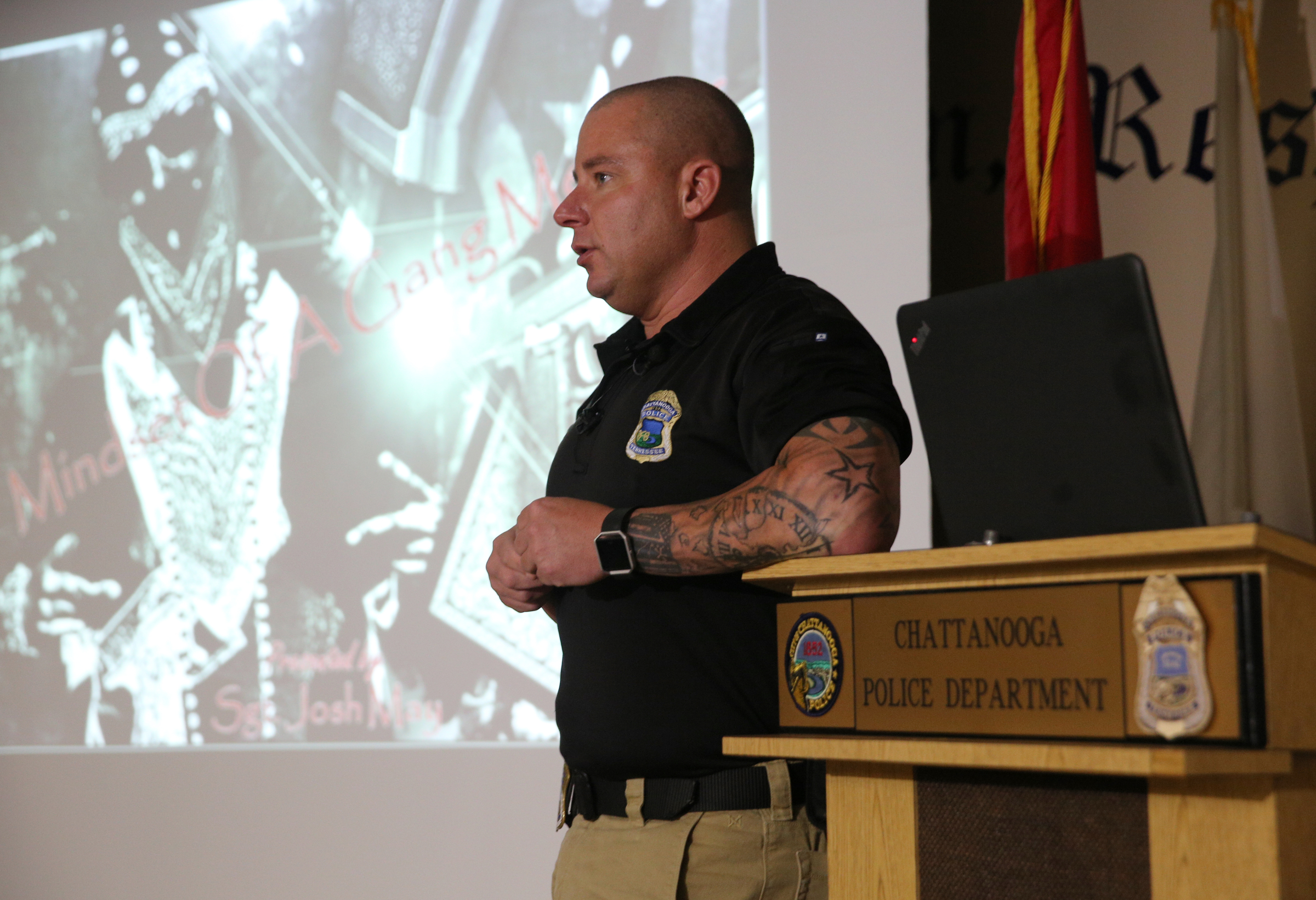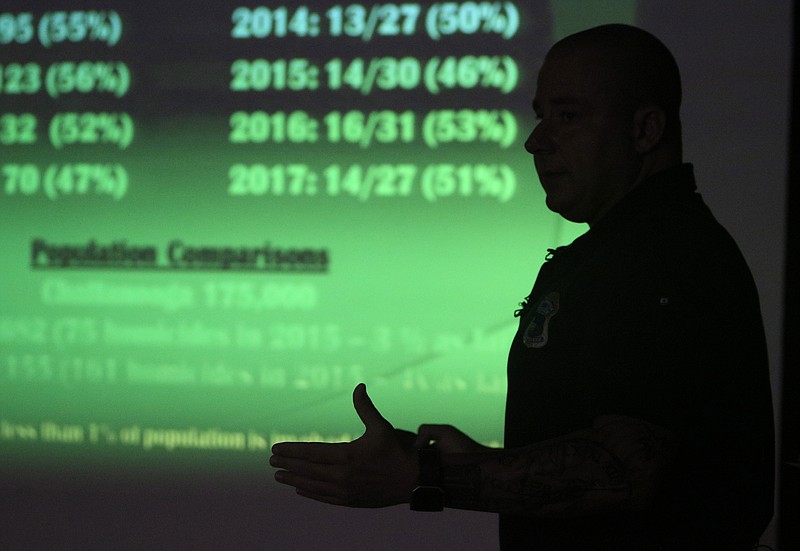 Chattanooga Police Department Sgt. Josh May gives a "Mindset of a Gang Member" presentation Wednesday, Aug. 9, 2017, at the Public Service Center in Chattanooga, Tenn. May explained the Violence Reduction Initiative, Focused Deterrence and the challenges of addressing gang-related crime in Chattanooga.
Chattanooga Police Department Sgt. Josh May gives a "Mindset of a Gang Member" presentation Wednesday, Aug. 9, 2017, at the Public Service Center in Chattanooga, Tenn. May explained the Violence Reduction Initiative, Focused Deterrence and the challenges of addressing gang-related crime in Chattanooga.Sgt. Josh May, the man in charge of coordinating the Chattanooga Police Department's anti-gang efforts, believes one of the first steps to quelling violence is understanding the people who make up the city's gangs.
He says people have to understand how and why those individuals came to be in those positions, as well as what gangs offer to members who seem to be signing on at younger ages every year.
"Most gang members will state they aren't a gang, they're a family," he said during a presentation Wednesday at police headquarters. The self-made lesson has become a kind of stump speech he gives to schools, churches and organizations multiple times a week.
The offer of structure and support from gangs can be appealing to young men and women who have never experienced that from their own families.
"Out of 12.2 million single-parent families, 83 percent are headed by single mothers," he said. "One in three children - 15 million - are raised without a father in the household. Four-and-a-half million children in the U.S. are being raised by their grandparents."
"Gangs come in and find the void that's left there."
With more than 1,300 gang members and gang associates identified by police in Chattanooga and just over 400 officers in the department, he said authorities have their hands full.
In 2017, the problem is exacerbated by the role that social media plays in the lives of gang members, May said. The same instantaneous connection that allows anyone with internet to keep in touch with their friends also allows violent gang responses to erupt in minutes.
May said he's worked a number of cases in which a gang member's house was shot up because of something he or she posted about another gang days - or even hours - before.
"You disrespected my gang and all of a sudden you're taking a shot at me, my family and all that," he said.
Don Green, executive director of the Law Enforcement Innovation Center at the University of Tennessee at Knoxville, agreed, saying the immediacy of posts and reactions doesn't allow people to calm down or reason through the situation.
"Culture has evolved that any suggestion of disrespect from one gang to another may instigate violence," he said. And interpretation can be vast. Displays of money, girlfriends or locations perceived to be another gang's can lead to retaliation.
May said part of the solution to addressing systemic issues of gang activity and violent crime is getting at the root causes with a variety of solutions, which is what the Violence Reduction Initiative was designed to do.
Under the VRI, one of Mayor Andy Berke's signature programs, authorities relied on "focused deterrence" through cooperation by police, prosecutors and social service groups to punish shooters, while offering job training and education to people willing to give up their guns.
Green said such programs can deter violence if used correctly.
"Any structured, formalized policing strategy that uses problem solving as a component of enforcement can be effective," he said. "We have seen numerous examples involving public housing policing, where criminal activity was reduced due to dedicated enforcement and partnership with the community members."
May said mentoring and conversations work in tandem with focused policing, because they show gang members what will happen to them if they remain in those gangs while offering them better options with support from the community.
"These kids don't know how to react to each other," he said. "One on one, they're good kids."
He pointed to Jumoke Johnson, a gang kingpin he knew personally and talked with for hours on several occasions. He said he even spent a Christmas morning with Johnson, who he said was smarter and more charismatic than almost anyone he's known.
Johnson was killed in a double homicide in January. Chattanooga has seen 25 homicides since then, the most recent being a shooting Tuesday on Lightfoot Mill Road.
"The kid ran the gamut and could sit here and talk," he said of Johnson. "I can't explain what that kid should have been instead of where he's at now."
Contact staff writer Emmett Gienapp at egienapp@timesfreepress.com or 423-757-6731. Follow him on Twitter @emmettgienapp.
